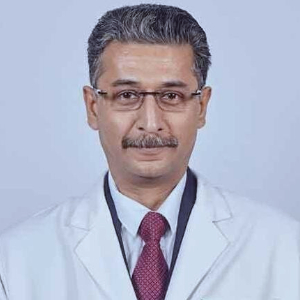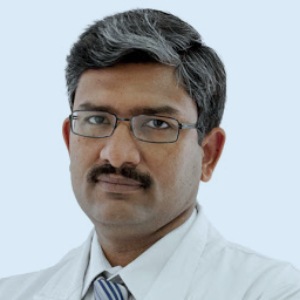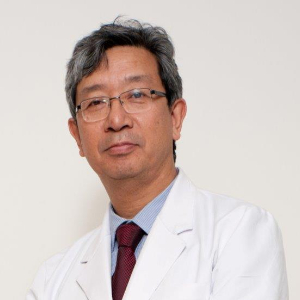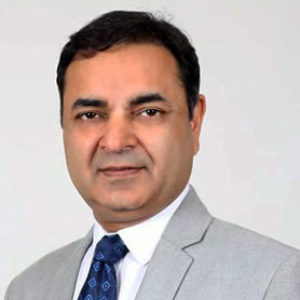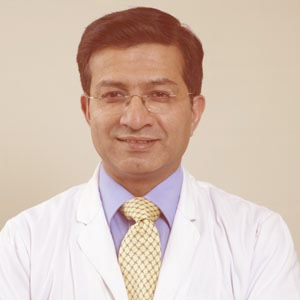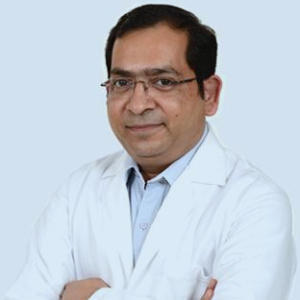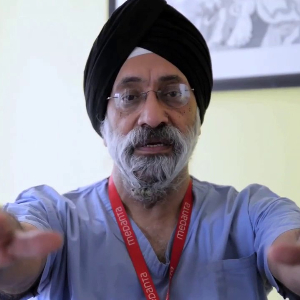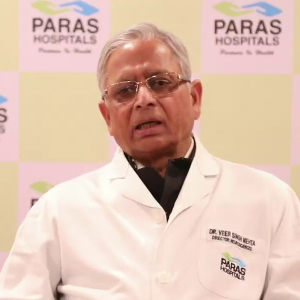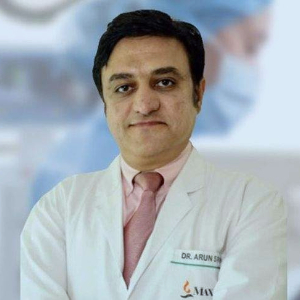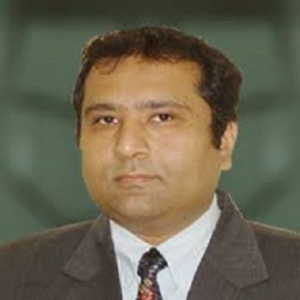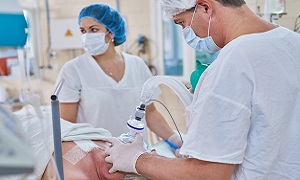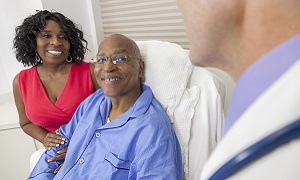Best VP Shunt Doctors in India
- Neurosurgeon, Gurugram, India
- Over 22 years’ experience
Profile Highlights:
- Dr. Sandeep Vaishya is a renowned Neurosurgeon in India, with over 22 years of proficient experience in the field of advanced neurosurgery.
- He has closely worked with some of the top-notch institutes and hospitals in India.
- Dr. Vaishya is regarded as one of the top surgeons of Gamma Knife Surgery in South Africa and is also considered a renowned surgeon for brachial plexus injuries.
- Neurosurgeon, Gurugram, India
- Over 25 years’ experience
Profile Highlights:
- Dr. Aditya Gupta is one of the top Neurosurgeons in India who co-founded the Institute of Neurosciences at Medanta and functioned there as the Additional Director of the Department of Neurosurgery.
- He is an active member of the Congress of Neurological Surgeons (US), Neurological Society of India, International Gamma Knife Society Treasurer, Indian Society for Stereotactic and Functional Neurosurgery, and Skull Base Surgery Society.
- Neurosurgeon, Gurugram, India
- Over 32 years’ experience
Profile Highlights:
- Dr. Rana Patir is one of the most experienced and highly qualified Neurosurgeons in India.
- He holds an extensive experience of 32+ years as a neurosurgeon and has performed more than 10,000 neurosurgical procedures till date.
- Dr. Patir is an expert in all kinds of neuro and spine surgeries with a specialization in minimally invasive brain and spine surgery, Epilepsy surgery, pediatric neurosurgery, and neurovascular surgery.
- Neurosurgeon and Spine Surgeon, New Delhi, India
- Over 25 years’ experience
Profile Highlights:
- Completing over 9000 successful neurological procedures, and still counting, Dr. Sudhir Tyagi is one of the top-notch names in India, diligently catering to neurological assistance with his vast knowledge and adept expertise.
- In fact, Dr. Sudhir Tyagi is the first neurosurgeon to use the Image Fusion Technique to localize targets in the deep part of the brain to perform functional stereotactic surgeries. He has great experience in all types of brain and spine surgeries.
- Neurosurgeon, New Delhi, India
- Over 20 years’ experience
Profile Highlights:
- Dr. Bipin Walia is one of the most famous neurosurgeons who has performed over 7000 successful neurosurgeries so far.
- He earned his MBBS and MS (General Surgery) degree from Armed Forces Medical College, Pune, followed by which his, M.Ch(Neurosurgery) from All India Institute of Medical Sciences, New Delhi.
- Dr. Bipin Walia has over 20 years of experience with his outstanding performance earning him quite some rewards and recognition.
- Neurosurgeon & Spine Surgeon, New Delhi, India
- Over 20 years’ experience
Profile Highlights:
- Dr. Anil Kumar Kansal is a well-known neuro and spine surgeon in Delhi with over 2 decades of experience.
- He has performed over 10,000 neurosurgical procedures including 4500 brain surgeries, 500 endoscopic brain surgeries, 2000 spine surgeries, 400 aneurysms, and 500 anterior cervical microdiscectomies with 60 disc replacement procedures.
- Dr. Kansal holds great skills in aneurysm clippings, neuro-modulation, epilepsy, and neurovascular surgery and has handled several such types of cases in his career.
- Neurosurgeon, Gurugram, India
- Over 30 years’ experience
Profile Highlights:
- Dr. V P Singh is a renowned Neurosurgeon with over 30 years of veteran experience. His competence in cranial, spinal, and peripheral nerves has helped him successfully perform 400+ Intracranial Aneurysm surgical procedures.
- Dr. Singh has also been credited for initiating the Gamma Knife Unit and epilepsy surgery program at All India Institute of Medical Sciences, New Delhi.
- He is proactively involved in the treatment of arteriovenous malformations by radiosurgery techniques and is currently the chairman of the Institute of Neurosciences, Medanta.
- Neurosurgeon, Gurugram, India
- Over 38 years’ experience
Profile Highlights:
- Dr. (Prof.) V S Mehta is a leading Neurosurgeon in India and is considered among the best neurosurgeons in the world.
- He holds an experience of over 38 years in the field and is an expert in Brachial Plexus surgery, brain stem surgery, spinal tumor surgery, brain aneurysms, and brain tumor surgery.
- He has been honored with the Padma Shri for his dedication and contributions to neurosurgery and spine surgery in India.
- In Paras Dr. V S Mehta has been part of the team to first use the Image-Guided Brain Tumor Navigation Technology for Brain tumor surgery in India.
- Neurosurgeon, New Delhi, India
- Over 20 years’ experience
Profile Highlights:
- Dr. Arun Saroha is a renowned Neurosurgeon with extensive experience in the surgical treatment of all kinds of brain and spine disorders.
- He holds an experience of over 20 years in the field and has performed over 8000 neurosurgeries till date for different types of neuro and spinal diseases.
- Dr. Saroha is an expert in minimally invasive spine surgery, neuro-onco surgery, trauma surgery and is also among the few neurosurgeons with expertise in Pediatric neurosurgery.
- Neurosurgeon, Gurugram, India
- Over 20 years’ experience
Profile Highlights:
- Dr. Sudhir Dubey is a leading Neurosurgeon whose primary area of specialization is Endoscopic Neurosurgery and has been perfecting the procedure since 1998. He has also developed various new Endoneurosurgery techniques for surgeries on the brain, spine, and skull.
- He holds an experience of more than 2 decades in neurosurgery and finds interest in skull base surgery, Pituitary tumor surgery, Brain Aneurysm surgery, CyberKnife Radiosurgery, and brain and spine tumor surgeries.
Best VP Shunting Hospitals in India
Indraprastha Apollo Hospital, New Delhi
- City: New Delhi, India
Hospital Highlights:
- Indraprastha Apollo Hospital is a 700-bedded multispecialty hospital in the heart of the capital of India. It is a part of Apollo Hospital group, one of India’s most reputed healthcare chains. Indraprastha Apollo Hospital has been accredited by Joint Commission International, making it the first internationally accredited hospital in the country in 2005.
- There are 52 specialties in the hospital with one of the best cardiology centers in the country. The hospital is also equipped with State of the art infrastructure facilities with the largest Sleep Lab in Asia and the largest number of ICU bed facilities in India.
- The hospital also has one of the largest dialysis units in India along with a dedicated Bone Marrow Transplant unit.
- The latest and highly advanced technologies that are installed in the hospital include Da Vinci Robotic Surgery System, PET-MR, PET-CT, Cobalt-based HDR Brachytherapy, Brain Lab Navigation System, Tilting MRI, Portable CT scanner, 3 Tesla MRI, 128 Slice CT scanner, DSA Lab, Endosonography, Hyperbaric Chamber and Fibro scan.
Fortis Memorial Research Institute, Gurugram
- City: Gurugram, India
Hospital Highlights:
- Fortis Memorial Research Institute is a multi-super-specialty, quaternary care hospital with 1000 beds. The hospital comprises reputed clinicians, and international faculty and is also equipped with cutting-edge technology. The hospital is a part of Fortis Healthcare Limited, a reputed chain of private hospitals in India.
- It is a NABH-accredited hospital that is spread across 11 acres of land and has a capacity of 1000 beds. The hospital has 55 specialties and is one of the premier health care centers in the Asia Pacific region popularly known as “the Mecca of Healthcare”.
- The hospital has 260 diagnostic centers and is also equipped with the latest and advanced techniques that include 3 Telsa which is the world’s first Digital MRI technology. The hospital also has world-class Radiation Therapy techniques which have been developed by leading technology experts from Elekta and Brain Lab.
Apollo Hospital, Chennai
- City: Chennai, India
Hospital Highlights:
- Apollo Hospitals, Chennai, is one of the best hospitals for heart care in India. Over the years, Apollo has expanded all over India, as a healthcare chain.
- India’s first ‘Only Pancreas’ transplant was performed in Apollo Hospital. The hospital is known for successfully performing Asia’s first en-bloc combined heart and liver transplant, and over the years, it has attained a remarkable achievement in the global healthcare space. Around 3-4 organ transplants are performed in the hospital per day.
- Equipped with over 500 beds, this hospital in Chennai was established in 1983 and since then has been among the most preferred hospital for patients from all over the world.
- The hospital holds accreditation of the NABH and JCI and is the first hospital in India to be ISO 9001 and ISO 14001 certified. It is also the first South Indian Hospital to receive subsequent reaccreditation from the JCI USA 4 times.
Medanta-The Medicity, Gurgaon
- City: Gurugram, India
Hospital Highlights:
- One of India’s best and largest multi-specialty hospitals, Medanta was built with the aim to bring India to the highest standards of medical care. The hospital has been providing the best medical services to its patients, since its inception, with care, commitment, and compassion.
- Equipped with 1250 beds, the hospital was founded by Dr. Naresh Trehan in the year 2009 with an aim to provide the best medical care at affordable costs. The hospital is spread across 43 acres and includes 45 operation theatres and 350 beds dedicated solely to ICU. The hospital includes over 800 doctors, and more than 22 specialty departments and has a dedicated floor for individual specialty in order to offer the best services under one roof.
- The hospital is considered one of the premier institutes in India for Cardiac Care and includes staffs and members of high caliber. The hospital has 6 distinct centers of excellence.
Max Super Specialty Hospital, New Delhi
- City: New Delhi, India
Hospital Highlights:
- One of the well-regarded providers in India committed to the highest standards of clinical excellence and patient care, Max Super Specialty Hospital is a part of Max Healthcare, which is the second-largest healthcare chain in India. Regarded as one of the most well-regarded healthcare providers in the country, Max Super Specialty Hospital is committed to the highest standards of clinical excellence as well as patient care. The hospital is also equipped with the latest technology as well as cutting-edge research. The hospital is known to deliver and ensure the highest level of patient care.
- The hospital has more than 500 beds and offers treatment for over 35 specialties. The hospital also holds the credit of having installed the first Brain Suite in Asia. This is a highly advanced Neurosurgical machine that allows MRI to be taken while surgery is ongoing.
- Other advanced and latest technologies are also installed in the hospital such as the 1.5 Tesla MRI machine, 64 Slice CT Angiography, 4D ECHO, LINAC, and 3.5T MRI machine.
Artemis Hospital, Gurugram
- City: Gurugram, India
Hospital Highlights:
- One of the most well-known hospitals in the Delhi NCR, Artemis Hospital is the first hospital in Gurugram to get accredited by the Joint Commission International.
- With more than 40 specialties, the hospital has been designed to be one of the most technically advanced hospitals in the country, with the best medical and surgical health care. The hospital has eleven special and dedicated centers, for Heart, Cancer, Neurosciences, etc.
- The latest technologies in the hospital include Endovascular Hybrid Operating Suite and Flat panel Cath Labs for the cardiovascular department, 3 Tesla MRI, 16 slice PET CT, 64 Slice Cardiac CT Scan, HDR Brachytherapy, and highly advanced Image Guided Radiation Therapy techniques (LINAC) are installed in the hospital.
- The hospital has won several awards as well, since its inception.
BLK Max Super Specialty Hospital, New Delhi
- City: New Delhi, India
Hospital Highlights:
- Equipped with 650 beds, BLK Superspecialty Hospital is the largest stand-alone private sector hospital in Delhi.
- With over 1500 healthcare providers and 150 globally renowned super specialists, the hospital is one of Asia’s largest Bone Marrow Transplant Centres. The hospital is known for having some of the best cancer doctors in the country.
- The hospital is NABH and NABL accredited and was inaugurated by the first Prime Minister of India. Pt. Jawahar Lal Nehru.
Gleneagles Global Hospitals, Chennai
- City: Chennai, India
Hospital Highlights:
- Established in 1999, Gleneagles Global Hospital, Chennai, is one of the top healthcare facilities in Southern India. It is part of the Gleneagles Hospital Chain, which is the fourth largest healthcare chain in the country. The hospital specializes in multi-organ transplants of kidneys, liver, lungs, heart, etc.
- The hospital has an excellent infrastructure and state-of-the-art lab and equipment set-up. The hospital boasts cutting-edge technologies, a highly skilled team of doctors and surgeons, and trained support staff. Located in Perumbakam, Chennai, it is one of India’s premier health care destinations. The hospital has performed some of the most complex surgical and clinical procedures in India including multi-organ transplantations.
- The hospital’s lung transplantation program is one of the best in the country. The hospital is known for having performed India’s first single lung transplant and first minimal invasive lung transplant. It is also the only Indian hospital to be associated with King’s College Hospital, London, United Kingdom for liver transplantations.
Fortis Hospital, Mulund, Mumbai
- City: Mumbai, India
Hospital Highlights:
- Fortis Hospital in Mulund is a 315-bed multi-speciality tertiary care hospital with five JCI accreditations that offers a wide variety of diagnostic and therapeutic services. The Fortis Hospital in Mulund delivers patient-centred treatment with cutting-edge technology, highly skilled and experienced surgeons, and paramedical staff.
- This institution houses Maharashtra’s largest multi-organ transplant centre. It is also the first heart transplant centre in western India to conduct 100 or more consecutive heart transplants in under four years. It is the only hospital in the city to have multi-organ transplants and has handled the youngest patient for angioplasty. Fortis Hospital Mulund now boasts the first advanced surgical robot in central Mumbai.
- Cardiology and heart surgery, urology, nephrology, neurosciences, orthopaedics, digestive care, emergency and critical care, and maternity care are among the services provided by the hospital.
Kokilaben Dhirubhai Ambani Hospital, Mumbai
- City: Mumbai, India
Hospital Highlights:
- Kokilaben Dhirubhai Ambani Hospital, Named after the wife of Indian industrialist Dhirubhai Ambani, the founder of Reliance Industries, this is one of the top hospitals in Mumbai. This 750-bed multi-specialty hospital became operational in 2009. Known as one of India’s most advanced tertiary care facilities, the hospital is designed to raise India’s global standing as a healthcare hub, with an emphasis on excellence in clinical services.
- Kokilaben Dhirubhai Ambani Hospital uses Protocol and Care Pathway based treatment models to ensure the best outcomes for patients.
- The hospital represents a confluence of top-notch talent, cutting-edge technology, state-of-the-art infrastructure, and, most importantly commitment.
- The hospital also holds the accreditation of the NABH, NABL, CAP, and JCI.
- The hospital has been recognized as the No. 1 Multispecialty Hospital in Mumbai and the West Zone for the fifth year in a row in 2020 by The Week.
VP Shunt
VP shunt or ventriculoperitoneal shunt is a medical device which doctors use for treating hydrocephalus, a brain condition. The device can relieve pressure on the brain caused by fluid accumulation.
Hydrocephalus occurs when excess cerebrospinal fluid collects in the ventricles of your brain. This fluid cushions the brain and protects it from any skull injury inside. The fluid also acts as a delivery system for nutrients required by your brain and it also helps in taking away any waste product. Normally, this fluid flows through these ventricles to the base of your brain. After this, the fluid bathes the brain and spinal cord before it is reabsorbed into the blood.
When this normal flow gets disrupted, harmful pressure is created on the tissues of your brain, due to the buildup of excess fluid. This can lead to brain damage. VP shunts are therefore used by doctors, which they place inside of the brain’s ventricles to divert the fluid away from the brain so that normal flow can be restored.
Purpose
People of any age might develop hydrocephalus, due to which they might require a VP shunt. However, it is known to occur more in babies than adults. Hydrocephalus, which occurs when excess fluid builds up around the brain, occur due to several reasons such as overproduction of cerebrospinal fluid, poor absorption of cerebrospinal fluid by the blood vessels and any blockage preventing fluid from flowing throughout the brain. Blockages are usually the most common cause of hydrocephalus.
Preparation
Before the procedure, your doctor might recommend the following:
- Stopping consuming alcohol, as this might affect surgery and recovery
- Avoiding any herbal remedies or supplements
- Stopping taking vitamin E, as it may lead to bleeding
- Discussing any existing medication, as you might need to stop taking some before your surgery
- Discussing any heart devices and results of any tests for heart conditions
- Discuss if you have any allergies
- Stop smoking
On the night before your surgery, it is recommended that you don’t consume any food after midnight.
Procedure
Before the procedure to fit the VP shunt, you will receive a general anesthetic and therefore you will be unconscious during the procedure. Once you are fully asleep, a small hole in your skull will be drilled through an incision behind the ear.
They will thread one catheter into your brain through this opening. The other one will go behind your ear and is subcutaneous, which means it resides under the skin.
This tube then travels down to the chest and abdomen, allowing any excess cerebrospinal fluid to drain into the abdominal cavity, where it is absorbed by the body. Your surgeon might then attach a tiny pump to both the catheters. This may be then placed under the skin behind the ear.
When the pressure in the skull increases, this pump will automatically activate to remove any fluid. It also may even be possible to program the pump also called a valve, to activate when there is a certain volume of increase in the fluid.
Aftercare
You might experience a mild headache after the surgery. In such a case, the doctor will give pain medications.
Eating normally straight after the surgery might not be possible. A patient might need to start with liquids and eventually move to solid foods slowly.
During your follow-up visit, your doctor will be removing your stitches. In the meantime, it is important to keep the stitches clean and also check for any signs of infection every day.
The doctor will remove a person’s stitches during a follow-up visit. In the meantime, it is important to keep the incisions clean and also check for any sign of infection. Redness, swelling and fluid leakage might be signs of an infection.
It is important to consult with your doctor before you are able to start showering again. The doctor will also advise you when you will be able to resume your normal daily routine.
Results
For most people, a VP Shunt is able to successfully reduce any pressure in their brains. It takes several years before they require any replacement. For small children, the average lifespan of a shunt is two years. Adults and children over the age of 2 usually do not need a replacement for 8 or more years. However, the shunt systems need to be monitored frequently.
Risks and complications
The procedure for a VP Shunt has few risks. Some people can experience adverse effects due to the general anesthesia, such as breathing problems or changes in heart rate or blood pressure.
Although rare, sometimes a VP shunt can stop working correctly and require replacement. The following signs can indicate that the device may not be working as it should:
- redness or swelling where the catheter passes under the skin
- vomiting without feeling very nauseous
- loss of coordination or balance
- a persistent headache
- extreme fatigue
- trouble staying awake
- feeling of irritation
If a VP shunt stops working correctly, it is possible for it to over-drain or under-drain cerebrospinal fluid. If the pump drains cerebrospinal faster than the body produces it, it can lead to a brain hemorrhage. If the pump does not drain cerebrospinal fluid quickly enough, the symptoms of hydrocephalus will likely return.
It is also possible for the VP shunt to get infected. Signs of infection can include:
- redness or swelling where the catheter passes under the skin
- pain around the catheter
- a headache
- high fever
If you see any sign of infection, it is important to see a doctor immediately.
FAQs on VP Shunt
How long does a VP shunt last?
VP shunts can last as long as for 35 years.
Can a VP shunt be removed?
VP shunt can be removed, once the shunt has been proven to be unnecessary.
How long does it take to recover from shunt surgery?
Recovery from a VP shunt placement takes 3-4 days. Most people can leave the hospital within seven days after the procedure.

